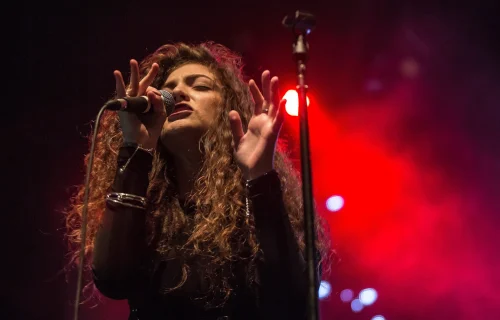In the realm of dystopian narratives, few stories capture the raw essence of rebellion and the struggle for agency as powerfully as The Hunger Games. The series, with its stark portrayal of a society oppressed by a tyrannical regime, resonates deeply with audiences yearning for change. Parallel to this, the music of Lorde, particularly her work on the soundtrack for The Hunger Games: Mockingjay – Part 1, channels similar themes of defiance and self-determination.
Lorde’s haunting melodies and poignant lyrics echo the tumultuous journey of Katniss Everdeen, the series’ resilient protagonist. Both the narrative of The Hunger Games and Lorde’s music explore the multifaceted aspects of oppression, the fervent spark of rebellion, and the relentless quest for personal and collective agency. Through her role as the curator of the soundtrack, Lorde intricately weaves her artistic vision with the saga of Katniss, creating a symbiotic relationship between the songs and the story’s pivotal moments.
Delve into how Lorde’s music mirrors the themes and emotional arcs found in The Hunger Games. By analyzing specific tracks on the soundtrack, we will uncover how they reflect and enhance Katniss Everdeen’s journey from a pawn in the Capitol’s game to the emblematic Mockingjay leading a revolution. This exploration will reveal the profound connection between Lorde’s evocative soundscapes and the narrative of defiance and empowerment that defines The Hunger Games.
Background
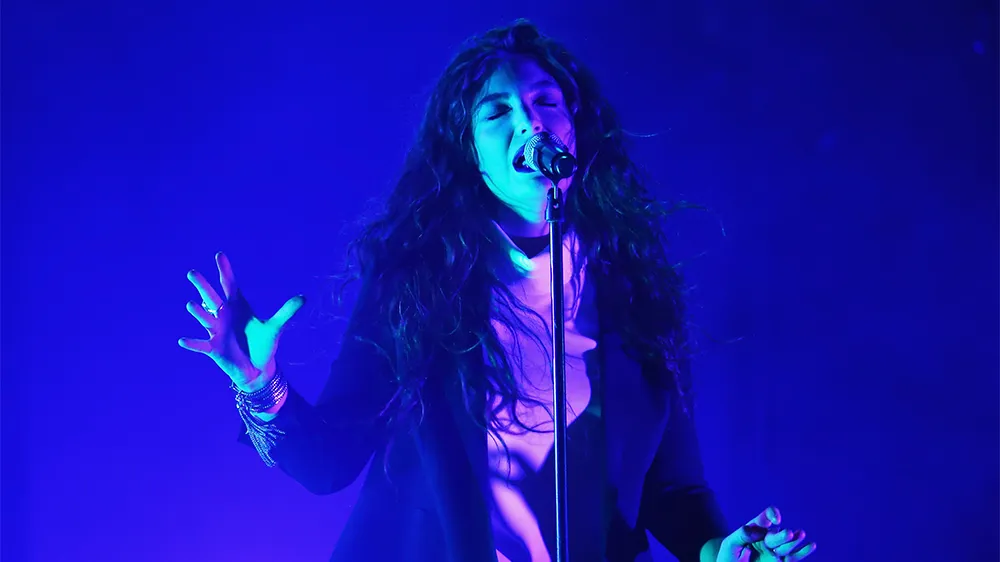
The Hunger Games
The Hunger Games series, penned by Suzanne Collins, unfolds within the oppressive dystopia of Panem, a nation divided into twelve districts, each under the iron-fisted rule of the Capitol. The Capitol maintains its dominance through the annual spectacle of the Hunger Games, a brutal event where children, known as tributes, are forced to fight to the death for the Capitol’s entertainment and as a reminder of its absolute power.
The narrative follows Katniss Everdeen, a resilient and resourceful young woman from District 12. Thrust into the limelight after volunteering to take her sister’s place in the Hunger Games, Katniss’s survival instincts and innate sense of justice quickly make her a symbol of hope and defiance against the Capitol’s tyranny. As the series progresses, Katniss transforms from a reluctant participant into the emblematic Mockingjay, the face of the burgeoning rebellion. Her journey is marked by personal loss, moral dilemmas, and the struggle to maintain her humanity amidst the horrors of war.
Lorde’s Involvement
In a stroke of artistic synergy, the New Zealand singer-songwriter Lorde was chosen to curate the soundtrack for The Hunger Games: Mockingjay – Part 1. Tasked with capturing the emotional and thematic essence of the film, Lorde not only contributed her own original tracks but also handpicked and oversaw the creation of songs by various artists that would accompany the movie’s intense narrative.
Lorde’s involvement extended beyond merely compiling music; she infused the soundtrack with a cohesive sound that mirrors the series’ dark, rebellious spirit. Her lead single, “Yellow Flicker Beat,” encapsulates the transformation of Katniss Everdeen, channeling the raw energy and defiance of a character who evolves from a survivor to a revolutionary leader. Through her careful curation, Lorde ensured that each track on the soundtrack resonated with the overarching themes of oppression, rebellion, and the fight for agency that define The Hunger Games saga.
Themes of Oppression
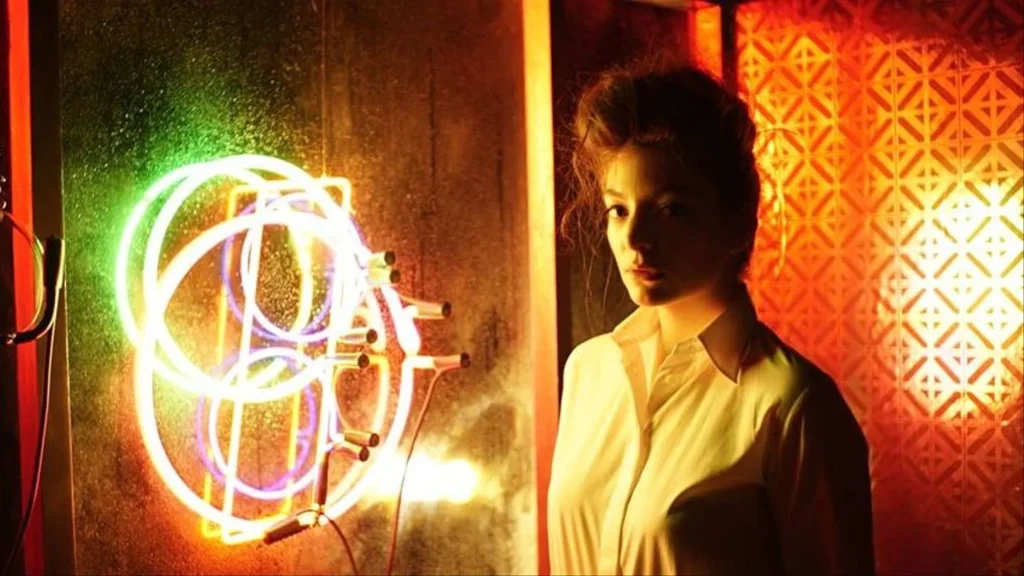
The Hunger Games
The dystopian world of The Hunger Games vividly portrays the theme of oppression through the stark contrasts between the Capitol and the districts. The Capitol, a city of opulence and excess, exerts totalitarian control over the twelve districts, enforcing their subjugation through a combination of economic exploitation and brutal entertainment. Districts are kept in a state of perpetual poverty, their inhabitants struggling to survive under harsh conditions. Resources are scarce, and the wealth generated by the districts’ labor flows directly to the Capitol, deepening the divide between the rulers and the ruled.
A prime example of this oppression is the annual Hunger Games, a gruesome spectacle where children, known as tributes, are selected to fight to the death. This event serves a dual purpose: it entertains the Capitol’s citizens while reinforcing the districts’ helplessness and submission. The Games are a stark reminder of the Capitol’s absolute power and the districts’ lack of agency. The forced participation in such barbarity underscores the dehumanizing control the Capitol exerts over the populace.
Lorde’s Music
Lorde’s music, particularly on the Mockingjay – Part 1 soundtrack, captures the essence of this oppressive environment. Her lead single, “Yellow Flicker Beat,” stands out as a powerful anthem reflecting the theme of oppression. The song’s lyrics and haunting melody delve into the psyche of someone who has endured immense pressure and control but is on the brink of rebellion.
In “Yellow Flicker Beat,” lines like “I’m a princess cut from marble, smoother than a storm” evoke the image of Katniss Everdeen, shaped and hardened by the Capitol’s cruelty. The song continues with “This is the start of how it all ends,” suggesting the beginning of a transformative uprising. The imagery in the lyrics speaks to the internal struggle against the forces of oppression, resonating with the collective pain and latent defiance found in the districts.
Lorde’s music amplifies the oppressive atmosphere of The Hunger Games, offering a sonic representation of the characters’ struggles and the heavy hand of the Capitol. Through her evocative lyrics and brooding tones, Lorde mirrors the bleak realities of the series, providing a poignant reflection on the themes of subjugation and the simmering desire for liberation.
Themes of Rebellion
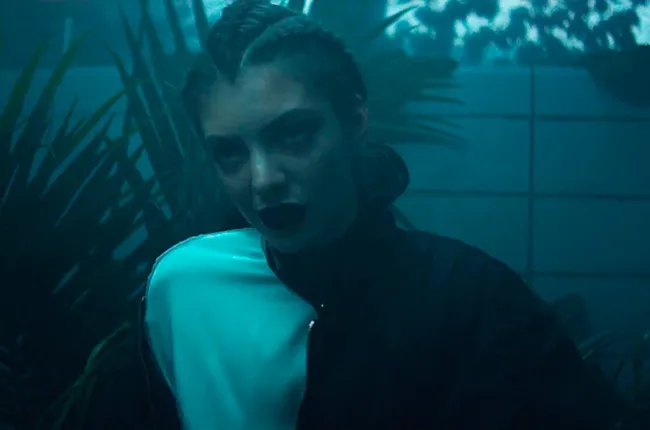
The Hunger Games
Rebellion is a central theme in The Hunger Games, intricately woven through the narrative and embodied by the protagonist, Katniss Everdeen. Katniss’s journey from a reluctant participant in the Hunger Games to the symbol of a revolutionary movement is marked by acts of defiance and the unyielding spirit of resistance. Her personal rebellion begins with small, symbolic acts, like her salute to Rue, a fellow tribute, which sparks an uprising in District 11. These gestures gradually escalate into more significant acts of defiance against the Capitol’s tyrannical rule.
The full-scale rebellion takes shape with the uprising in District 13, a hidden stronghold that becomes the hub of the resistance. Under the leadership of President Coin and the inspiration of Katniss as the Mockingjay, District 13 coordinates a series of strategic attacks aimed at overthrowing the Capitol. Katniss’s role as the Mockingjay is pivotal; she becomes the face of the rebellion, using her influence and image to galvanize the oppressed districts into unified action. Her journey is a testament to the power of individual and collective rebellion, showcasing how oppressed people can rise against their oppressors when united by a common cause.
Lorde’s Music
Lorde’s music, particularly on the Mockingjay – Part 1 soundtrack, captures the rebellious spirit that courses through The Hunger Games. However, away from the soundtrack one song that embodies this theme is “Team,” a song that resonates with the spirit of unity and defiance. The lyrics reflect a sense of camaraderie and shared purpose, elements essential to any rebellion.
In “Team,” Lorde sings, “We live in cities you’ll never see on screen,” which can be interpreted as a nod to the unseen, underrepresented districts that fuel the rebellion against the Capitol. The chorus, “I’m kind of over getting told to throw my hands up in the air, so there,” directly challenges the status quo and expresses a rejection of passive acceptance. This rebellious spirit is mirrored in the determination of Katniss and her allies to take control of their destinies and fight back against their oppressors.
The song’s driving beat and anthemic quality echo the energy and solidarity needed for a successful rebellion. By championing themes of unity and resistance, “Team” encapsulates the collective power of the districts as they come together to overthrow a common enemy.
Fight for Agency

The Hunger Games
Katniss Everdeen’s journey in The Hunger Games is a powerful narrative of reclaiming agency in a world designed to strip individuals of their power and autonomy. From the moment she volunteers to take her sister Prim’s place in the Games, Katniss begins a path of self-determination and defiance against the forces that seek to control her.
Strategic Choices in the Games: In the arena, Katniss’s actions are driven by her keen instincts and strategic thinking. Her alliance with Rue is a poignant example, where she forms a bond based on mutual trust and shared survival goals rather than succumbing to the Capitol’s expectation of ruthless competition. This alliance, though tragically short-lived, ignites a spark of rebellion, as Katniss honors Rue’s death with a gesture of solidarity that resonates deeply with the oppressed districts.
Leadership in the Rebellion: Katniss’s evolution into the Mockingjay symbolizes her full reclamation of agency. Initially resistant to the role, she gradually embraces it, understanding the profound impact her leadership can have on the rebellion’s success. Her decision to assassinate President Coin, rather than President Snow, in the climactic moment of the series, underscores her assertion of moral agency. This act of defiance prevents another cycle of tyranny and reflects her commitment to a just and equitable future for Panem. Through her strategic choices and unwavering resolve, Katniss transforms from a survivalist into a revolutionary leader, reclaiming her agency and inspiring others to do the same.
Lorde’s Music
Lorde’s music, particularly the song “Royals,” echoes the fight for agency, challenging societal norms and celebrating individuality. “Royals” is an anthem of resistance against the pressures and expectations imposed by a consumerist society, much like Katniss’s defiance against the Capitol’s oppressive regime.
“Royals”: In “Royals,” Lorde critiques the glorification of wealth and luxury, singing, “And we’ll never be royals / It don’t run in our blood / That kind of luxe just ain’t for us.” This rejection of materialistic values parallels Katniss’s refusal to conform to the Capitol’s demands. The song’s chorus, “Let me be your ruler / You can call me queen bee / And baby I’ll rule, I’ll rule, I’ll rule, I’ll rule / Let me live that fantasy,” celebrates the power of self-determination and the rejection of imposed identities. This mirrors Katniss’s journey as she defines her own path and becomes a leader on her terms.
Through “Royals,” Lorde captures the essence of fighting for personal and collective agency, advocating for authenticity and self-empowerment. Just as Katniss reclaims her agency by challenging the Capitol, Lorde’s music inspires listeners to reject societal pressures and embrace their true selves. Together, Katniss’s story and Lorde’s songs create a resonant narrative of empowerment, highlighting the importance of agency in the face of oppression.
Soundtrack and Character Journey
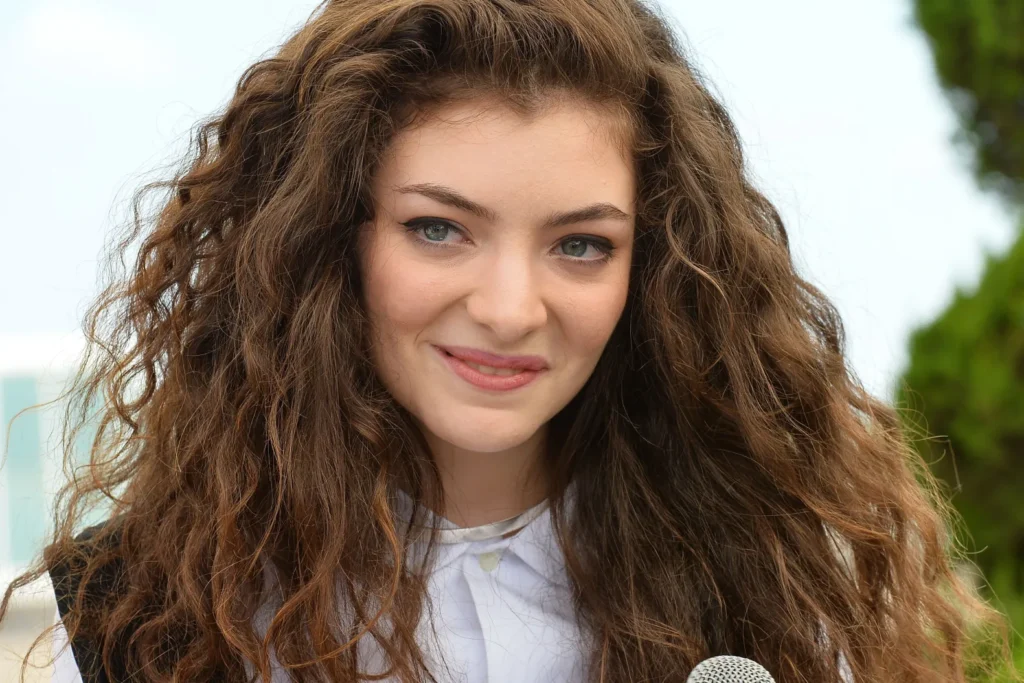
Specific Songs Analysis
The soundtrack of The Hunger Games: Mockingjay – Part 1, curated by Lorde, is intricately woven with the themes and emotional arcs of Katniss Everdeen’s journey. Key songs on the soundtrack reflect significant moments in Katniss’s transformation from a reluctant participant to a revolutionary leader.
“Yellow Flicker Beat”
This song by Lorde serves as a powerful anthem for Katniss’s metamorphosis. The lyrics “I’m a princess cut from marble, smoother than a storm” reflect Katniss’s hardened exterior and her inner strength. The chorus, “This is the start of how it all ends / They used to shout my name, now they whisper it,” captures the shift in Katniss’s role from a mere tribute to a symbol of rebellion. The haunting melody and intense beats mirror the tension and turmoil she faces as she embraces her identity as the Mockingjay. “Yellow Flicker Beat” embodies Katniss’s awakening and her readiness to confront the oppressive forces of the Capitol.
“Everybody Wants to Rule the World”
This cover by Lorde is another significant track that resonates with the series’ power struggles. The song’s lyrics, “Welcome to your life / There’s no turning back,” parallel Katniss’s realization that she is irrevocably entwined in the fight against tyranny. The line “Help me make the most of freedom and of pleasure / Nothing ever lasts forever” speaks to the fleeting nature of power and the constant quest for control, reflecting the Capitol’s grip on Panem and the districts’ yearning for liberation. The dark, brooding tone of this rendition adds a layer of foreboding, emphasizing the high stakes of the rebellion and the sacrifices involved.
“The Hanging Tree”
Sung by Jennifer Lawrence in the film, this song becomes a haunting rallying cry for the rebellion. The lyrics, “Are you, are you coming to the tree / Where they strung up a man they say murdered three,” evoke themes of resistance and martyrdom. The song’s eerie, somber mood underscores the gravity of the rebellion and the personal losses Katniss endures. It reflects the moment when Katniss sings this song to inspire the rebels, illustrating how music and memory can galvanize people to fight for a common cause.
“Ladder Song”
Performed by Lorde, this track captures the profound sense of loss and the quest for meaning amid chaos. The lyrics, “No one knows where the ladder goes/ you’re gonna lose what you love the most,” resonate with Katniss’s deep connections and the sacrifices she makes for her loved ones. The melancholic melody and reflective tone align with the moments of introspection Katniss experiences, particularly as she grapples with the emotional and moral complexities of leading a rebellion.
Each of these songs on the soundtrack not only enhances the narrative of The Hunger Games but also provides a rich, emotional landscape that mirrors Katniss Everdeen’s journey. Through these tracks, listeners are invited to experience the depth of her transformation and the intense, multifaceted struggle for freedom and agency.
Final Thoughts
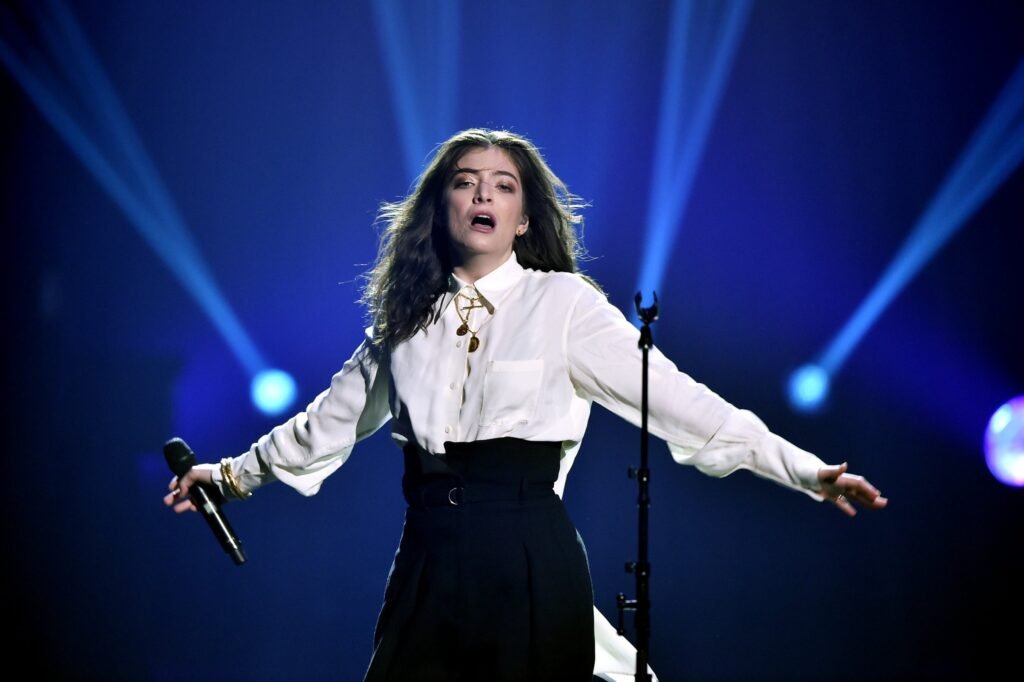
Throughout The Hunger Games series and Lorde’s music, we witness a profound exploration of the themes of oppression, rebellion, and the fight for agency. The dystopian world of Panem, with its stark divide between the Capitol and the districts, serves as a powerful backdrop for the narrative of systemic oppression and the brutal control exerted through the Hunger Games. Katniss Everdeen’s journey, marked by strategic choices and acts of leadership, illustrates the relentless struggle to reclaim personal and collective agency. Her transformation into the Mockingjay, the symbol of rebellion, highlights the power of defiance and the impact of unified resistance against tyranny.
Lorde’s music, especially the tracks curated for The Hunger Games: Mockingjay – Part 1 soundtrack, mirrors these themes with haunting precision. Songs like “Yellow Flicker Beat” and “Everybody Wants to Rule the World” capture the essence of Katniss’s transformation and the overarching power struggles. “The Hanging Tree” becomes an anthem of resistance, while “Ladder Song” reflects the personal sacrifices inherent in the fight for freedom. Together, these songs provide an emotional and thematic resonance that enhances the narrative of the series.
The Perfect Match
The synergy between The Hunger Games and Lorde’s music underscores the power of art to inspire change and reflect societal struggles. Both literature and music serve as potent mediums for exploring and challenging the status quo, offering audiences a way to connect with and understand complex issues of oppression and resistance. Katniss Everdeen’s story, amplified by Lorde’s evocative soundtrack, reminds us that the fight for agency and justice is both personal and collective.
As we engage with these narratives, we are encouraged to reflect on our own roles in challenging injustice and advocating for a more equitable world. Through the lens of fiction and the power of music, we find inspiration to rise against oppression and reclaim our agency, both in the stories we tell and the lives we lead.
